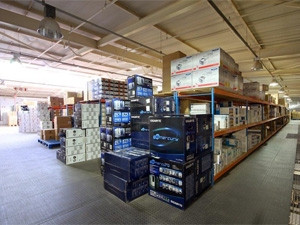
The constantly evolving IT landscape presents IT distributors with a challenge to find new ways of making their customers profitable, according to Lindi Shortt, MD of ICT and electronics distributor Rectron.
Speaking to ITWeb at a Rectron assembly line tour, Shortt revealed that emerging trends in the IT space, such as cloud computing, social media and mobility, are forcing the company and its competitors to find business differentiators that will positively impact their customers' margins.
"There's a strong reseller base that has to be actively engaged and it's about how we take them through this transformation," said Shortt. "We've had to realise quickly that in the distributor space, you are only as good as your suppliers, customers and internal personnel. The starting point for us was re-defining our product line, cementing existing relationships and exploring new partnerships."
One such partnership is the internal deal the distributor struck with Microsoft in 2013. Rectron took on Microsoft's volume licensing with the aim of making cloud computing technology easily accessible to its customer base, she said.
An even greater challenge for distributors in developing markets, according to Shortt, is that of catching up to global trends.
"Being from a market where technology adoption starts from a lower base means distributors in emerging markets will always lag behind. These technologies are designed mostly with more mature economies in mind, those that are ready to spend. We've had to find ways of diversifying them ourselves; making them relevant and ready for the market we serve."
Another way of running parallel to this technology evolution while aligning it with sound financial margins for both the distributor and its customers, is making inroads into the wearable technology market, says Shortt.
Research firm Deloitte's Global TMT report predicts this is a growing and increasingly lucrative market, which will see consumer interest leading to $3 billion in sales of glasses, watches and fitness bands in 2014.
"In this regard, we've partnered with TomTom to distribute its smartwatches and fitness wearables, which again helps us bridge the gap from the reseller perspective."
Sebastian Isaac, business development manager at Rectron, concurs, adding that one of the key business differentiators for Rectron is having reduced the product journey time from the production phase through to the delivery point.
"Customers should not wait for long periods for stock as it cuts into their productivity time. With this in mind, our systems are designed in a way that puts people closer to the stock, with technology augmenting the process in order to quicken the product movement. It's also about output, getting as many products out as possible," he says.
Isaac adds that Rectron's product line also has to reflect that there's a generation in SA which skipped PCs and went straight to tablets and smartphones. There are also those who don't necessarily want to know what cloud computing is, but rather about the business benefits of it.
"The challenge is moving beyond the technology jargon and showing customers what it really means for their return on investment. With wearables for example, you have to get consumers to buy into the idea that it's not just a watch, but also has impact in them adopting healthy lifestyle habits. That's where people start seeing the value of the cloud, data analytics and other trends."
Modern-day end-users have multiple sources of content available to them, shares Shortt. To leverage off this, she says the distributor will be bettering its offering into the e-commerce digitalisation space, with possible partnerships muted with the likes Takealot and Kalahari, making it easier for businesses to access Rectron.
"We are at exciting times, coupled with some challenges like a recently reported weakening GDP, but every dark patch presents opportunities," concludes Shortt.
Share